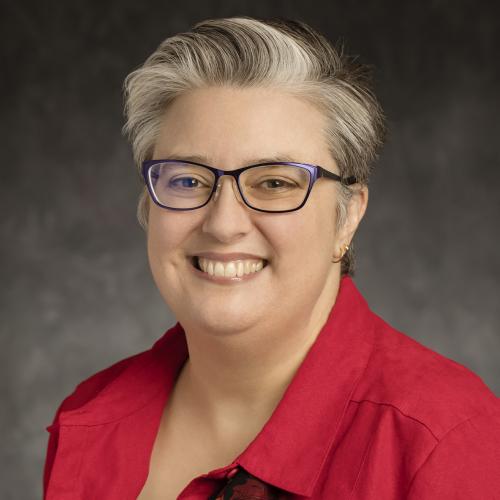As its second year of new funding begins, there is new leadership at the Midwest Big Data Innovation Hub (MBDH), with a swap in principal investigators and the appointment of a new executive director. Catherine Blake, a co-principal investigator (PI) on the project, has moved into the PI role, while William (Bill) Gropp transitions to co-PI duties. Long-time Hub staff member John MacMullen was named executive director in January.
Blake is an associate professor in the School of Information Sciences (iSchool) at the University of Illinois at Urbana-Champaign with an affiliate appointment in the Department of Computer Science. At the iSchool, she serves as associate director of the Center for Informatics Research in Science and Scholarship (CIRSS) and director of the graduate programs in information management and bioinformatics. Gropp is director and chief scientist of the National Center for Supercomputing Applications (NCSA) and the Thomas M. Siebel Chair in the Department of Computer Science at Illinois. Prior to joining the MBDH, MacMullen was a faculty member in the iSchool.
"I'm excited and honored to step into the role of principal investigator for the Midwest Big Data Hub," said Blake. "The community developed during the first phase has made the MBDH well positioned to leverage the rapidly growing data and information collections and technologies in Phase 2 that focus on opportunities, interests, and resources that are unique to the Midwest."
The MBDH, co-led by the NCSA and the iSchool, serves a twelve-state region that encompasses Illinois, Indiana, Iowa, Kansas, Michigan, Minnesota, Missouri, Nebraska, North Dakota, Ohio, South Dakota, and Wisconsin. It is part of the National Science Foundation's regional Big Data Innovation Hubs (BD Hubs) program that comprises offices in the Midwest, West, South, and the Northeast. Initially funded in 2015, the second phase started in summer 2019 and will run until 2023. The goal of the MBDH awards, which will total over $4 million for both phases, is to catalyze data science efforts around important priority areas in the Midwest.
"This month we're starting our second year of the new phase of the Hub with the launch of our Community Development and Engagement funding program," said MacMullen. "We look forward to continuing to develop a vibrant and diverse data science community in the Midwest that includes the range of academic institutions in the region, and grows participation from nonprofits, government agencies, and industry partners."
Priority areas for MBDH currently include advanced materials and manufacturing; water quality; big data in health; digital agriculture; and smart, connected, and resilient communities. In addition, MBDH leads cross-cutting initiatives to broaden the participation in data science education, develop cyberinfrastructure for research data management, and address cybersecurity issues around big data. MBDH engages with the BD Hubs Data Sharing and Cyberinfrastructure Working Group, the Open Storage Network, and other initiatives that foster access to research data under FAIR (findable, accessible, interoperable, reusable) principles. By leading initiatives in data science education and workforce development, the MBDH aims to increase data science capacity within the region, such as by growing a network of predominantly undergraduate institutions and minority-serving institutions.
"The MBDH is building on the momentum of its first phase by growing the stakeholder community in the Midwest," said Gropp, who began as PI of the Hub in 2017. "At the same time, we’re actively participating in the evolution of the national data science ecosystem. I look forward to continuing to develop long-term sustainability for the Hub's activities through strategic projects such as the COVID Information Commons collaboration between the Hubs and NSF, launching in July 2020."
Follow MBDH on Twitter: @MWBigDataHub
The Midwest Big Data Innovation Hub was initially funded under NSF award #1550320. The current Phase 2 award is #1916613.
